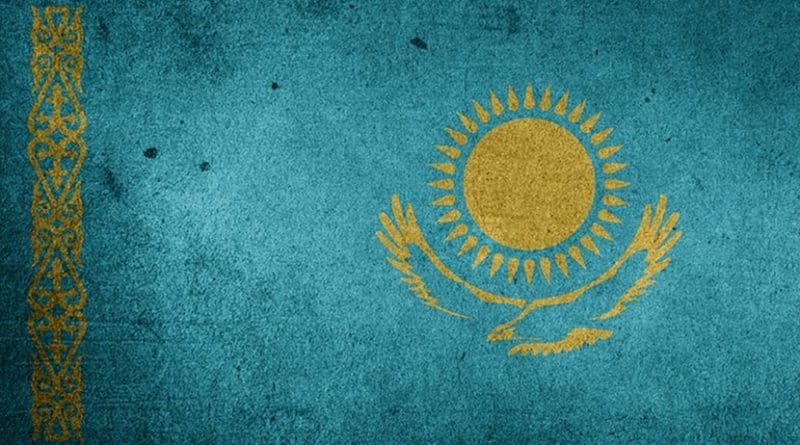Kazakhstan: Genuine Pluralism Remains Elusive As Observers Slam Election
By Eurasianet
By Joanna Lillis
Kazakhstan’s ruling Nur Otan party has won its expected landslide in a January 15 parliamentary election – a month after at least 17 protestors were shot dead by security forces – and will be joined in parliament by two other parties, preliminary results show.
Although Kazakhstan’s next parliament will be multi-party, unlike its predecessor in which President Nursultan Nazarbayev’s Nur Otan held all seats, observers doubt the new Mazhilis (lower house) will be genuinely pluralistic. The two parties assuming seats alongside Nur Otan – the pro-business Ak Zhol and the Communist People’s Party of Kazakhstan (KNPK) – are broadly supportive of Nazarbayev and his policies. Genuine opposition forces cried foul, and international observers also found fault with the election.
“Notwithstanding the government’s stated ambition to strengthen Kazakhstan’s democratic processes and conduct elections in line with international standards, yesterday’s early parliamentary vote still did not meet fundamental principles of democratic elections,” observers from the Organization for Security and Cooperation in Europe-led mission said in a January 16 statement.
Nazarbayev hailed the election as “unprecedented in terms of transparency, openness and honesty.”
With turnout reported at 76 percent, Nur Otan won 81 percent of the vote, a result the 71-year-old president, in power for over two decades, interpreted as “carte blanche” to pursue his strategy.
“The party always keeps its finger on the pulse of our people’s life,” Nazarbayev said after results were released. “Kazakhstanis have again given the party carte blanche; they have voted for our unity, for stability in our country, for future development, for the implementation of the programs I have proposed.”
Ak Zhol – led by Azat Peruashev, who left Nur Otan last summer to assume the leadership of this nominally rival party – and the KNPK – led by Vladislav Kosarev – also cleared the 7-percent threshold to win seats: Ak Zhol won 7.5 percent of the vote, while the KNPK scraped through with 7.2 percent. Neither party is critical of the administration.
“There are no genuine signs that the Kazakh president wants to embrace a Western-style democracy,” Lilit Gevorgyan, Russia/CIS analyst at IHS Global Insight, said in a briefing note on January 16.
Of the seven parties running only the National Social Democratic Party (OSDP) – whose co-leader Bolat Abilov was disqualified days before the vote – represented a genuine opposition force. OSDP leaders refused to recognize the results of an election they believe was rigged, and have pledged to rally in Almaty on January 17.
“These elections are a line the authorities have crossed – a Rubicon after which all hopes that the current authorities can reform themselves are lost,” OSDP co-leader Zharmakhan Tuyakbay told a news conference on January 16.
Party leaders said they possessed evidence of ballot stuffing and multiple voting. A video posted by Radio Free Europe appeared to show electoral officials jamming ballots into boxes in Almaty.
On January 16 the prosecutor’s office acknowledged cases of ballot stuffing, but described them as a provocation by unspecified forces.
International observers noted “significant procedural shortcomings” in the vote count, including cases of ballots for other parties being placed in Nur Otan’s pile.
“This election took place in a tightly controlled environment, with serious restrictions on citizens’ electoral rights,” concluded Miklos Haraszti, the OSCE observation mission head. “Genuine pluralism does not need the orchestration we have seen – respect for fundamental freedoms will bring it about by itself.”
On the plus side, observers noted voting was “calm” and “technically well administered.”
Astana has billed this election as a leap forward along the path of democratization, replacing a one-party legislature with a multi-party parliament. In fact, every parliament in Kazakhstan since independence has been multi-party with the exception of the last one, elected in 2007 – when Nur Otan alone cleared the electoral threshold – and dissolved in December 2011 for this snap election.
Constitutional amendments enacted in 2008 exempting the second-place party from the threshold guaranteed that future parliaments would contain at least two parties.
That in itself does not ensure plurality, observers suggested. “If Kazakhstan is serious about their stated goals of increasing the number of parties in parliament, then they should have allowed more genuine opposition parties to participate in this election,” Joao Soares, OSCE Parliamentary Assembly short-term observer mission head, said.
Three genuine opposition parties were barred from competing at all.
Zhanaozen, epicenter of last month’s protests in western Kazakhstan, voted under a state of emergency, with restrictions on freedom of movement and access for journalists. Little independent information has been emerging from the town, and Astana has yet to address allegations by Human Rights Watch that detainees have been tortured in custody.
Nazarbayev said that 70 percent of Zhanaozen residents had voted for Nur Otan, but rights advocates are concerned that residents cast their ballots in an atmosphere of intimidation.
Undeterred by criticism, the president attended a victory rally in Astana and told 8,000 cheering delegates that the election had been “a victory for the whole Kazakhstani people.”
Joanna Lillis is a freelance writer who specializes in Central Asia.

